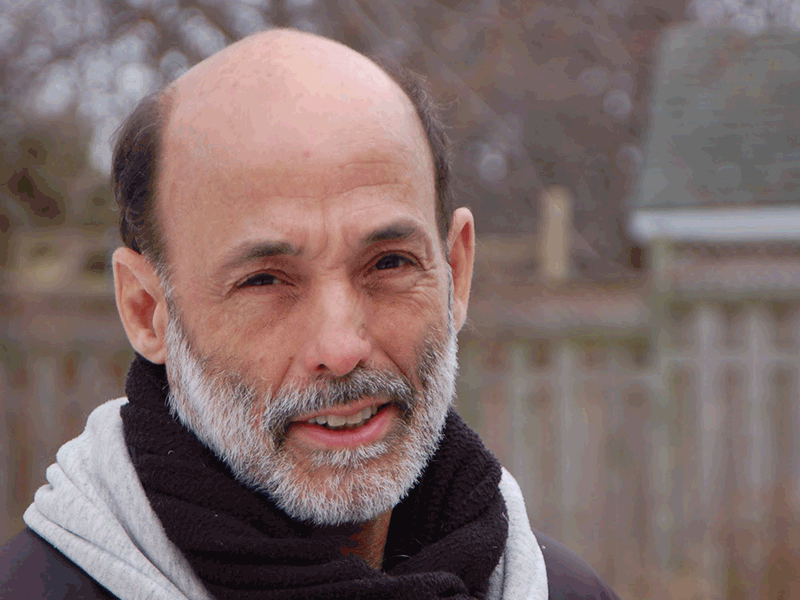A Winnipeg man who is the son of Holocaust survivors says he will take the Canadian Food Inspection Agency (CFIA) to court if it does not reverse its decision that permits wines produced in West Bank settlements to be labelled as “Product of Israel.”
“The occupied West Bank is not part of Israel,” David Kattenburg, a university lecturer and activist, said. “West Bank settlements flagrantly violate international law. Israel shouldn’t be allowed to claim sovereignty over its illegal settlements on Canadian store shelves. Settlement products should actually be banned from Canada, outright. That’s not what I’m asking for. I’m simply asking that settlement products be labelled as such so Canadians can decide for themselves whether or not they wish to aid and abet war crimes.”
Kattenburg first voiced his concerns about Shiloh Legend and Psagot Winery wines, to the Liquor Control Board of Ontario (LCBO) in January 2017. He escalated the complaint in March, taking it to the Canadian Food Inspection Agency (CFIA). On July 6, the CFIA directed the LCBO to instruct wine vendors to stop selling the two wines, but within 24 hours the agency reversed itself.
In announcing its initial decision, the CFIA stated, “The government of Canada does not recognize Israel’s sovereignty over the territories occupied in 1967.”
READ: MINISTER SIGNS TRADE AGREEMENT WITH ISRAEL
However, following protests from Jewish advocacy organizations, including B’nai Brith Canada and the Centre for Israel and Jewish Affairs (CIJA), the food agency reversed itself, saying, “In our assessment, we did not fully consider the Canada-Israel Free Trade Agreement (CIFTA).”
Afterwards, B’nai Brith called on its supporters to make a point of purchasing Psagot and Shiloh wines and it ran a short interview on its web site with Psagot Winery founder Yaakov Berg, in which he pointed out that Jews have been producing wine at the site since the time of the Second Temple, 2,500 years ago.
Martin Sampson, director of communications and marketing for CIJA, said “CIFTA, in accordance with bilateral agreements between Canada and the Palestinians, treats the whole region as a single economic zone. CIFTA defines Israel’s territory for trade purposes as wherever Israel’s customs laws are applied. Both wineries in question are in areas where Israel’s customs laws apply and therefore wines produced at those wineries are correctly labelled.”
Sampson also pointed out that Palestinian exports benefit from the preferential treatment provided by CIFTA and that the PLO on behalf of the Palestinian Authority (PA) “confirmed PA approval of the application of preferential tariffs and any future concessions under CIFTA to goods produced in the West Bank and Gaza Strip.”
Kattenburg disagrees. “CIFTA does not trump Canadian food packaging and labelling law – nor international law incorporated into Canadian domestic legislation,” he said.
But for Sampson, there is more at stake than a legal dispute over labelling.
“This is not about wine. This is about attempting to set a precedent to further the cause of BDS (boycott, divestment, sanctions),” he said.
“What BDS seeks to do is achieve symbolic wins to psychologically bully and demonize those who stand with Israel. It’s a vile strategy. BDS is nothing more than discrimination based on national origin.
“Prime Minister Justin Trudeau has clearly stated that his government rejects efforts to single out Israel by differentiating between products based on where they are produced relative to the Green Line. This is the right approach. Doing otherwise pre-judges the outcome of future negotiations between the two parties on the critical issue of the border between Israel and the future state of Palestine,” Sampson added.
Dimitri Lascaris, who is representing Kattenburg in the case, suggested the case might still be in its early stages.
If Kattenburg’s appeal to CFIA’s Complaints and Appeals Office fails, he is prepared to take the case as far as the Supreme Court, Lascaris said.







